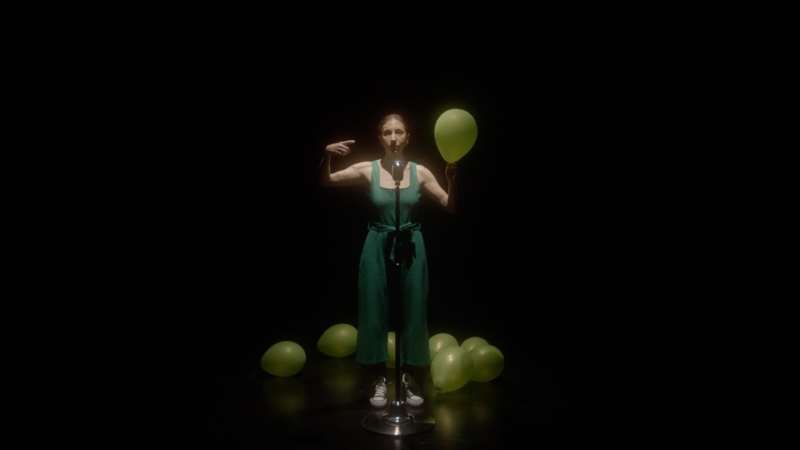Sarah Albu
Stimme

Which sound is special for you?
One of the earliest sonic memories I have is of riding in the car as a small child on a rainy day and listening to the rhythm of the turn signal go in and out of phase with the windshield wipers. I remember feeling both comforted and perplexed, waiting for the sounds to sync and slowly realizing it was only temporary, that they would go their separate ways again and go on chasing one another until we finally turned and it was only the wipers.
Another special sound that is very delicious to my ears and dear to my heart is the the sound of frogs singing at night, a full spectrum lullaby that I remember from visiting my grandparents in the countryside. It’s a sound that makes me feel everything is momentarily suspended, that time is malleable and things that seemed rigid are suddenly quite porous.
What can disturb (your) music?
This is such a complex question! I feel that much of the music I participate in could already be categorized as disturbance, for example work that mixes genres, plays with perceptions or ideals of „good“ or „pure“ singing, or that doesn’t sit cleanly within one scene or style. So how does one disturb the disturbance and what does that mean to me?
In any project, I’m always looking for the meaning and how it connects to life as part of intersecting ecosystems. I’m always thinking about what music DOES, as an action, as a living entity or a connective tissue. It doesn’t need to be overtly disruptive to disturb; music that invites joy and catharsis and smooths out the bumpiness of experience can be disturbing to forces that would see us live in constant misery and exhaustion.
My earliest artistic and musical experiences were with community theatre and the all-ages punk scene in my hometown. Later I got involved with traditional music and experimental music. Through connections between improv, experimental music and theatre/performance art I eventually found a sort of a home singing „new music“, new opera and more composed works. In my practice art, music and sound have always been intensely intertwined with their social contexts and the communities that feed them.
These days, much of my work happens inside institutional contexts that value disturbance in music and take comfort in it; it’s important for me to keep questioning that comfort and challenging myself by continuing to work in different settings that function entirely outside of institutions. I enjoy showing up in unexpected places, places where I „shouldn’t“ be seen or heard.
I see disturbance as positive and essential, as an audience member I want to be surprised and I want my expectations to be challenged and disrupted. I think camp and humour are great ways to achieve this. I appreciate it when an artist takes risks that challenge the acceptable limits of risk-taking.
The forest fires have been really bad in much of Canada for the past few summers and I have developed asthma from the smoke. It has disturbed my vocal practice. It is physical, concrete. This is only one annoying and minor way that the climate crisis affects me personally; meanwhile many worldwide are experiencing complete destruction and devastation. Creating as if in a vacuum doesn’t feel possible to me anymore, nor does pretending that everything is fine. The crisis is inside our bodies. Another reason to keep disturbing and disrupting.
How would you describe the relationship to your instrument?
As a student right here at the Darmstadt Summer Course back in 2016 (!) I made a participatory work wherein I invited the audience to join me in a series of actions inspired by 1980s aerobics videos, concluding with the repeated chant „My Body Is Technology!“ as a large group. I would say that still sums up my relationship to my instrument; I am my instrument and the whole of my being enters my vocal practice. Sometimes I appear in a performative state without vocalizing but in these cases the instrument is still present. In every situation, all of me is present, whether I like it or not: my mood that day, the quality and humidity of the air, what I happened to eat or drink just prior, whether I am warm or cold, etc.
Voice is so individual, it’s difficult for me to separate my physical body and my performance self from this little internal sound-making machine. My instrument is not an alien parasite living inside me as a host, although some days it can feel like it! My voice is rebellious, it doesn’t always want to do what I or other people ask it to. I’m still on this journey of finding the right way to ask, and the right way to listen.